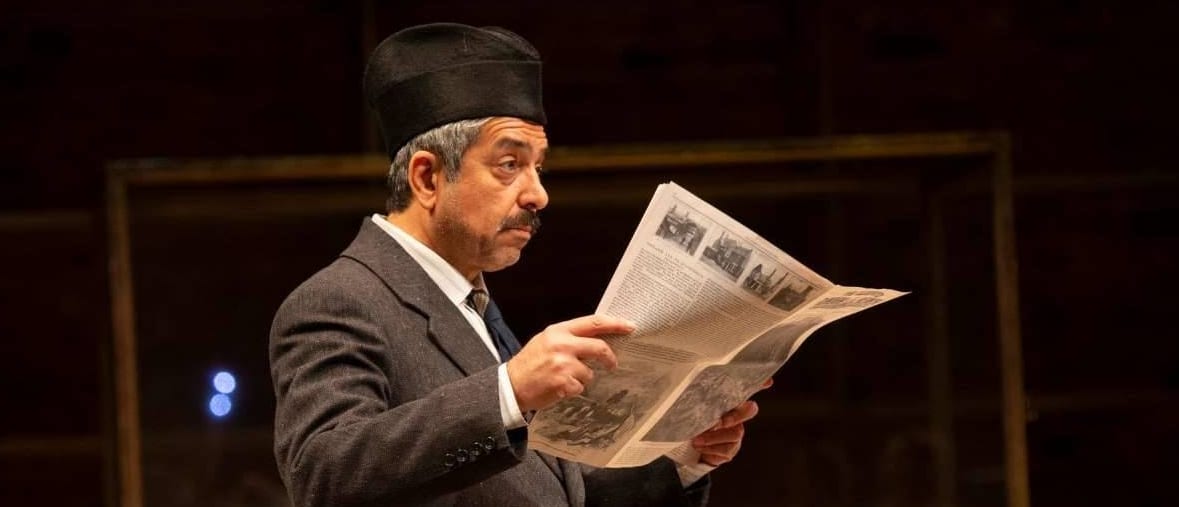The idea of A Museum in Baghdad is a strong one, and one that interests me a lot. The production of this new play by Hannah Khalil is highly professional and imaginative and I was impressed by all the actors. I am also very interested in the story of Gertrude Bell in particular; and I liked the use of the double time scheme that contrasted the opening of the museum in Bell’s own day with the reopening and problems in our own times after the Iraq war and the looting of the museum as well as the destruction of some of its artefacts. The idea in itself is very appealing; and the staging by Erica Whyman, in a simple but apt design by Tom Piper, is evocative of the two different eras. The historic references and contrasts are thought provoking and the style of the production does capture the attention. At times the company turns into a Greek chorus; and there is quite a lot of confusing use of Arabic, references to ancient Arabic legends and deities, etc. I liked the character of Abu Zaman (Rasoul Saghir) being in both eras, playing the same role for both female museum directors. I liked the “Me Too” awareness of the story. I thought Emma Fielding was strong, convincing and appealing in the role of Gertrude Bell and was impressed and at times moved by Zed Josef as her assistant, Salim, and by David Birrell as Professor Leonard Woolley. I think that Rendah Heywood did an excellent job as Ghalia Hussein, the post-Iraq war director, and enjoyed Houda Echouafni as the archaeologist, Layla Hassan, and Debbie Korley as the American soldier. But my problems began by finding some of the characterizations simply too emblematic and not enough portrayed at individuals. The entire ensemble worked together with real sincerity and conviction. But the play itself was weak.
The day after seeing the production I did find its ideas growing on me, but only as ideas. I found the script itself too long, the actors being given lines too much in the style of a Guardian editorial, and the text was at times seriously repetitive and tedious in trying to get across its admonishments and criticisms. The dialogue felt too much like invective and not enough like actual people speaking. The movement and chanting of the ensemble and even the “orientalist” background music did not lift the production into dramatic theatricality. For me the action, ideas and characterizations were shallow. I wanted to know much more, for instance, about the earlier and hugely influential life of Gertrude Bell and how she ended up in this situation. I wanted to know more about the background of Ghalia Hussein, the archaeologist and museum director after the Iraq war. There was simply too much polemic put into the mouths of the characters and not enough individualising personality.
So I think it is an excellent production and well-acted. It is not a total waste of time to see it and it does have some information that you might not otherwise know. There is an air of sincerity and worthiness about it. But ultimately, the first act was too long and rather boring; and the second act, though somewhat more interesting, still did not come to life for me. The themes of imperialism and feminism are very clearly stated and even overstated, and they are therefore intellectually somewhat provocative but in not way dramatically engaging. I call it Bertolt Brecht without the theatricality. Ultimately you would learn more about Gertrude Bell by seeing the interesting and much more engaging documentary Letters from Baghdad. I like the subject and was looking forward to the play but I find it hard to recommend.

